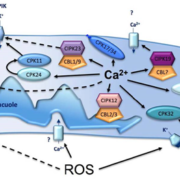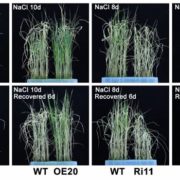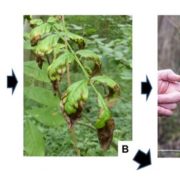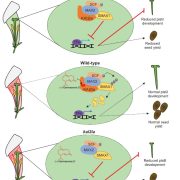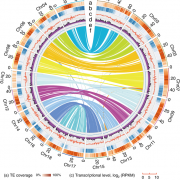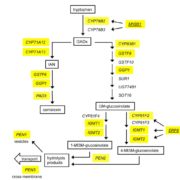Genome-wide identification of Medicago peptides involved in macronutrient responses and nodulation
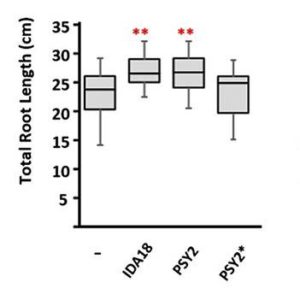 Plants are highly plastic and can modulate their growth and development to better respond to abiotic and biotic surroundings. Among the molecules involved in the adaptation to the environment, a crucial role is played by small secreted peptides (SSPs). In their paper, integrating 144 transcriptomic experiments, de Bang and colleagues were able to reannotate the Medicago truncatula genome and specifically identified thousands of new SSPs. They further characterize a subset of SSPs specifically influenced by macronutrient stresses or rhizobial interaction. In both cases the endogenous application of synthetic SSPs had a strong impact on plant development: the ones selected for being nutrient-responsive induced an arrest in primary root growth, while the application of legume-specific SSPs repressed the formation of nodules. The paper therefore shows the importance of SSPs as regulators of key plant processes. (Summary by Marco Giovannetti) Plant Physiol. 10.1104/pp.17.01096
Plants are highly plastic and can modulate their growth and development to better respond to abiotic and biotic surroundings. Among the molecules involved in the adaptation to the environment, a crucial role is played by small secreted peptides (SSPs). In their paper, integrating 144 transcriptomic experiments, de Bang and colleagues were able to reannotate the Medicago truncatula genome and specifically identified thousands of new SSPs. They further characterize a subset of SSPs specifically influenced by macronutrient stresses or rhizobial interaction. In both cases the endogenous application of synthetic SSPs had a strong impact on plant development: the ones selected for being nutrient-responsive induced an arrest in primary root growth, while the application of legume-specific SSPs repressed the formation of nodules. The paper therefore shows the importance of SSPs as regulators of key plant processes. (Summary by Marco Giovannetti) Plant Physiol. 10.1104/pp.17.01096


